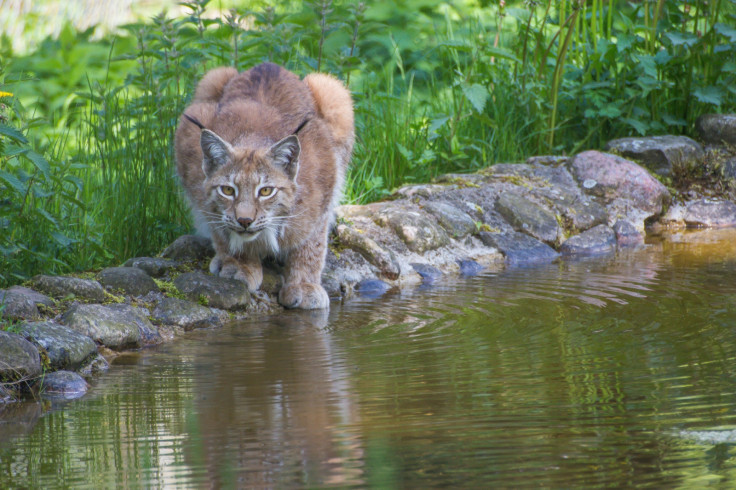Campaign group calls for reintroduction of wolves, lynx and wild boar to UK forests

A new campaign group has called for the reintroduction of some ferocious wild animals such as wolves and lynx to British forests in a bid to nurse the ecosystem back to full health.
Rewilding Britain has said that wild boars and beavers should also be restored in the UK, mainly in Scotland, to allow "native forests to regenerate" and "reverse centuries of ecological damage".
Lynx have not been found in Britain for about 1,300 years and, according to the group, the UK has lost more large mammals than any other country in Europe, except Ireland.
Susan Wright, a spokeswoman for Rewilding Britain, told BBC Scotland: "A lot of our important animals were hunted to extinction, species like the wolf, the wild boar, the lynx.
"These are important keystone species which actually drive ecological processes and we should be looking a lot more seriously at bringing these animals back."
However, farmers north of the border are wary of the reintroduction of large predators due to the impact it may have on their livestock
A lot of our important animals were hunted to extinction, species like the wolf, the wild boar, the lynx. These are important keystone species which actually drive ecological processes and we should be looking a lot more seriously at bringing these animals back
Vice president of the National Farmers Union (NFU) Scotland Andrew McCornick said: "The Scottish public value the contribution that farmers and land managers make and the access that they have to that beautiful, managed environment across the whole of Scotland.
"However, recent history has taught us that any species introduction – whether legal or illegal – can have an impact on the many benefits that the Scottish countryside currently delivers.
"There are now farmers and crofters in some of Scotland's more remote areas losing lambs on a regular basis to sea eagles. With a ministerial decision on beavers pending, there are farmers on Tayside producing food on some of Scotland's most productive land but seeing their efforts literally undermined by beaver damage to long-established drainage systems and waterways.
"Farmers are justifiably concerned at what the introduction of predators could mean for their livestock, particularly the many thousands of sheep kept on Scotland's hills and uplands.
"Scotland's focus must be on integrating land use and the environment in a balanced way through the conservation of the species that we have.
"That message must not be lost in headline-grabbing calls to create an imaginary Scottish landscape that hasn't properly existed for many centuries. Such moves could be very damaging – economically and ecologically – to Scotland's already flourishing environment."
The Scottish government said that it will "consider the issues carefully" but added that there are no plans in the pipeline as of yet.
© Copyright IBTimes 2025. All rights reserved.






















